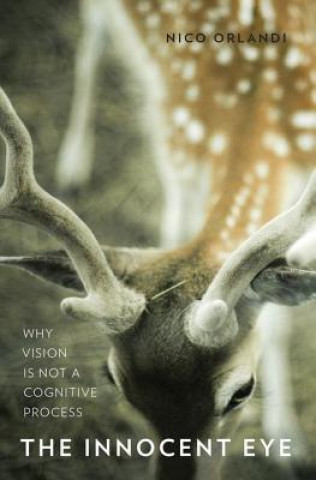
Kód: 04532379
Innocent Eye
Autor Nico Orlandi
Why does the world look to us as it does? Generally speaking, this question has received two types of answers in the cognitive sciences in the past fifty or so years. According to the first, the world looks to us the way it does b ... celý popis
- Jazyk:
 Angličtina
Angličtina - Vazba: Pevná
- Počet stran: 272
Nakladatelství: Oxford University Press Inc, 2014
- Více informací o knize

Mohlo by se vám také líbit
-

Importance of Assent
3289 Kč -

Implementation of Legally Binding Measures to Strengthen the Biological and Toxin Weapons Convention
6536 Kč -

Something to Shout About
673 Kč -

Conscript
586 Kč -

Miners, Unions and Politics, 1910-1947
4989 Kč -

Ship Design
7421 Kč -

Bonner Rechtswissenschaftliche Abhandlungen. Neue Folge.
3113 Kč
Darujte tuto knihu ještě dnes
- Objednejte knihu a zvolte Zaslat jako dárek.
- Obratem obdržíte darovací poukaz na knihu, který můžete ihned předat obdarovanému.
- Knihu zašleme na adresu obdarovaného, o nic se nestaráte.
Více informací o knize Innocent Eye
Nákupem získáte 256 bodů
 Anotace knihy
Anotace knihy
Why does the world look to us as it does? Generally speaking, this question has received two types of answers in the cognitive sciences in the past fifty or so years. According to the first, the world looks to us the way it does because we construct it to look as it does. According to the second, the world looks as it does primarily because of how the world is. In The Innocent Eye, Nico Orlandi defends a position that aligns with this second, world-centered tradition, but that also respects some of the insights of constructivism. Orlandi develops an embedded understanding of visual processing according to which, while visual percepts are representational states, the states and structures that precede the production of percepts are not representations. If we study the environmental contingencies in which vision occurs, and we properly distinguish functional states and features of the visual apparatus from representational states and features, we obtain an empirically more plausible, world-centered account. Orlandi shows that this account accords well with models of vision in perceptual psychology - such as Natural Scene Statistics and Bayesian approaches to perception - and outlines some of the ways in which it differs from recent 'enactive' approaches to vision. The main difference is that, although the embedded account recognizes the importance of movement for perception, it does not appeal to action to uncover the richness of visual stimulation. The upshot is that constructive models of vision ascribe mental representations too liberally, ultimately misunderstanding the notion. Orlandi offers a proposal for what mental representations are that, following insights from Brentano, James and a number of contemporary cognitive scientists, appeals to the notions of de-coupleability and absence to distinguish representations from mere tracking states.
 Parametry knihy
Parametry knihy
Zařazení knihy Knihy v angličtině Reference, information & interdisciplinary subjects Interdisciplinary studies Cognitive science
2561 Kč
- Plný název: Innocent Eye
- Podnázev: Why Vision Is Not a Cognitive Process
- Autor: Nico Orlandi
- Jazyk:
 Angličtina
Angličtina - Vazba: Pevná
- Počet stran: 272
- EAN: 9780199375035
- ISBN: 0199375038
- ID: 04532379
- Nakladatelství: Oxford University Press Inc
- Hmotnost: 490 g
- Rozměry: 243 × 157 × 23 mm
- Datum vydání: 21. August 2014
Oblíbené z jiného soudku
-

Distracted Mind
491 Kč -

Embodied Mind
898 Kč -
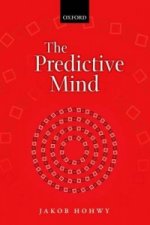
Predictive Mind
1213 Kč -

Mindware
2396 Kč -

Cambridge Handbook of Artificial Intelligence
1090 Kč -
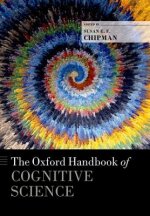
Oxford Handbook of Cognitive Science
5877 Kč -
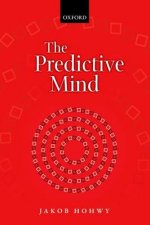
Predictive Mind
5129 Kč -

Enaction
1002 Kč -

Neuropsychopharmacology
5405 Kč -

Cambridge Handbook of Artificial Intelligence
2676 Kč -
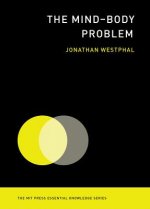
Mind-Body Problem
428 Kč -
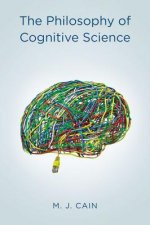
Philosophy of Cognitive Science
890 Kč -

Mark of the Mental
1307 Kč -

Big Data in Cognitive Science
5371 Kč -

Human Sexuality
3232 Kč -

Genius Checklist
812 Kč -

Handbook of Collective Intelligence
868 Kč -

Cognitive Science and Artificial Intelligence
1813 Kč -

Body Image and the Asian Experience
4291 Kč -
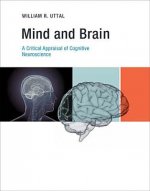
Mind and Brain
255 Kč -

Computational Models Of Cognitive Processes - Proceedings Of The 13th Neural Computation And Psychology Workshop
3661 Kč -

Anigrafs
255 Kč -
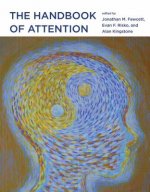
Handbook of Attention
2296 Kč -
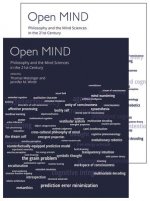
Open MIND
7666 Kč -

Brain Sell
463 Kč -

Anthropology of the Brain
2420 Kč -

Scientific Study of Personal Wisdom
4488 Kč -

Creating Language
868 Kč -

Experiments and Modeling in Cognitive Science
4561 Kč -

Understanding Female Offenders
4031 Kč -

States and Processes for Mental Health
4828 Kč -
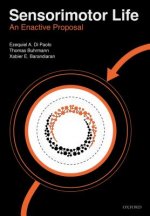
Sensorimotor Life
2714 Kč -

Embodiment, Enaction, and Culture
1389 Kč -

Collective Intelligence
3909 Kč -

MRI Atlas of the Infant Rat Brain
5235 Kč -

Big Data in Cognitive Science
1926 Kč -
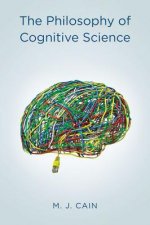
Philosophy of Cognitive Science
2061 Kč -
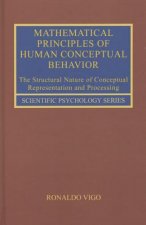
Mathematical Principles of Human Conceptual Behavior
5255 Kč -

From Symptom to Synapse
4949 Kč -

Pragmatic Guide to Low Intensity Psychological Therapy
4013 Kč -

Visual Attention and Consciousness
5371 Kč -

Measuring and Modeling Persons and Situations
4828 Kč -

Shaping the Future of Child and Adolescent Mental Health
2595 Kč -
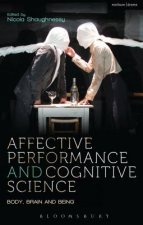
Affective Performance and Cognitive Science
6103 Kč -
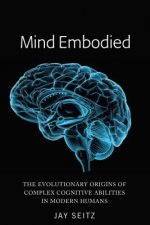
Mind Embodied
3614 Kč -

Who's Asking?
1307 Kč -

Evolving Enactivism
1137 Kč -

Mindmade Politics
1327 Kč -

Action Science
255 Kč
Osobní odběr Praha, Brno a 12903 dalších
Copyright ©2008-24 nejlevnejsi-knihy.cz Všechna práva vyhrazenaSoukromíCookies



 Vrácení do měsíce
Vrácení do měsíce 571 999 099 (8-15.30h)
571 999 099 (8-15.30h)